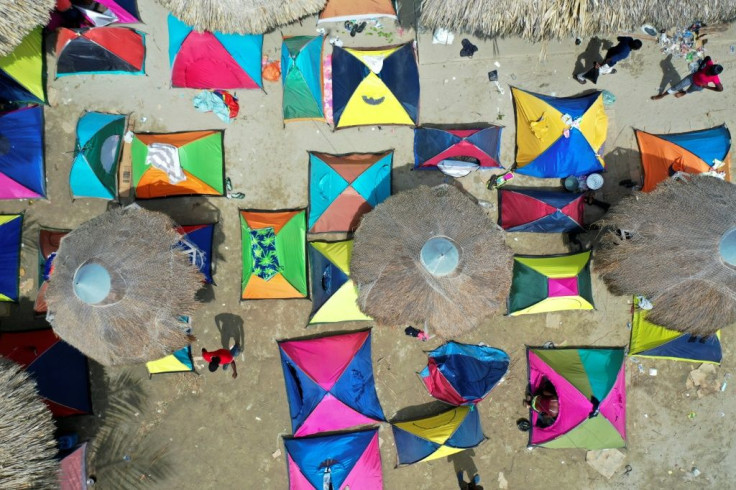Thousands Of US-Bound Migrants Stranded In Colombia
Thousands of migrants are stranded in a Colombian port town as they wait for boats to cross into neighboring Panama on their way to the United States, a state relief agency said.
The Gulf of Uraba, on Colombia's northern coast, is one of the main transit points for refugees from nearby Latin American nations as well as Africa, and Asia, trying to cross into Panama through a jungle corridor known as the Darien Gap.
The United States is usually their final destination.
But the number of migrants arriving in the municipality of Necocli has swelled in recent weeks and a local shipping company that transports people across the gulf into Panama's southern jungle is unable to keep up, the municipal disaster management agency said Tuesday.
In the absence of land crossings to the border, "the company takes around 700 to 750 (migrants) but at night 1,000, 1,100, 1,200 more arrive," head of the disaster management unit, Cesar Zuniga, told AFP.
He added that more than 10,000 migrants had now accumulated in the municipality of 45,000 people.
Dozens of migrants, including pregnant women and children, can be seen crowded on the beach waiting for a spot on a boat in images shared by local authorities.

Zuniga said many of them were living in local hotels or rented rooms.
In January, hundreds of migrants living in makeshift tents on the beach were trapped in Necocli due to strict border closures meant to contain the coronavirus pandemic.
"This time it is different," said Zuniga. "There is no forced border closure, the build-up is due to the operational and logistical inability of the transport company," Zuniga said.
In May, Colombia reopened its land, river, and sea borders with Panama, Peru, Ecuador, and Brazil, after closing them for more than a year due to the pandemic.
Earlier in July, it also reopened borders with Venezuela.
A United Nations report in June showed global displacement figures swelled to around three million in 2020 after an already record-breaking year in 2019, with the majority of refugees hosted in countries neighboring crisis areas.
Colombia hosts the world's second-largest refugee population with 1.7 million displaced people living in the country, the UN said in the report.
© Copyright AFP {{Year}}. All rights reserved.





















